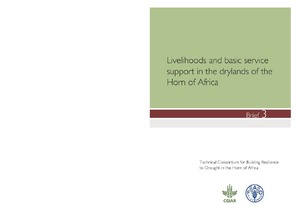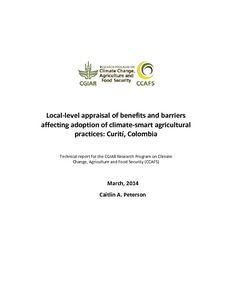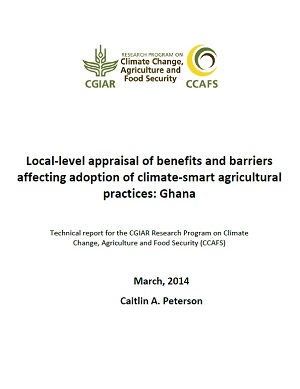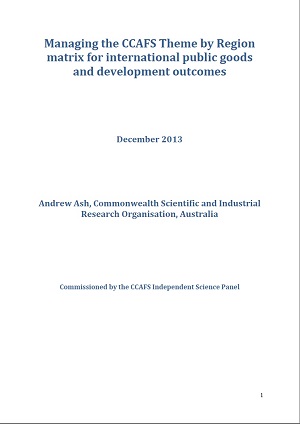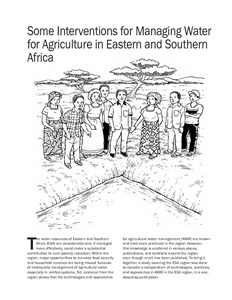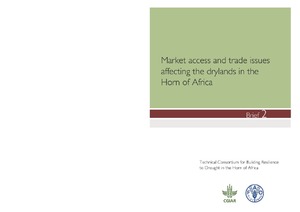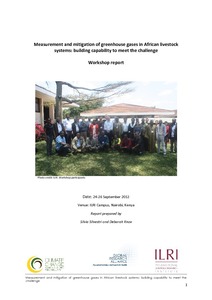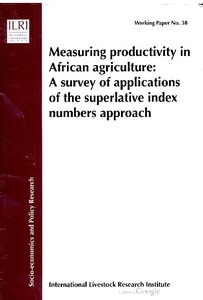Local institutions for irrigated agriculture in Cambodia
Local-level appraisal of benefits and barriers affecting adoption of climate-smart agricultural practices: Curití, Colombia
Although Climate-Smart Agricultural (CSA) practices are expected to boost adaptive capacity, food security and climate change mitigation in resource poor, smallholder farming systems, the barriers that can restrict its uptake are diverse. This study investigated the barriers hindering CSA practice adoption in the Santander department of Colombia as well as farmer perceptions of practice benefits and disadvantages.
Local-level appraisal of benefits and barriers affecting adoption of climate-smart agricultural practices: Ghana
Although Climate-Smart Agricultural (CSA) practices are expected to boost adaptive capacity, food security and climate change mitigation in resource poor, smallholder farming systems, the barriers that can restrict their uptake are diverse. This study investigated the principal barriers hindering the adoption of CSA practices in the Upper West region of Ghana with the aim of inventorying existing uptake of CSA and providing recommendations to CCAFS as to practices with potential for further research or implementation on the farm level.
Managing the CCAFS Theme by Region matrix for international public goods and development outcomes
This review was commissioned to undertake an evaluation of how the Climate Change, Agriculture and Food Security (CCAFS) Theme by Region matrix is being managed to deliver on International Public Goods (IPGs) and development outcomes.
Managing water: Some interventions for managing water for agriculture in Eastern and Southern Africa
Managing Potato Biodiversity to Cope with Frost Risk in the High Andes: A Modeling Perspective
Austral summer frosts in the Andean highlands are ubiquitous throughout the crop cycle, causing yield losses. In spite of the existing warming trend, climate change models forecast high variability, including freezing temperatures. As the potato center of origin, the region has a rich biodiversity which includes a set of frost resistant genotypes. Four contrasting potato genotypes –representing genetic variability- were considered in the present study: two species of frost resistant native potatoes (the bitter Solanum juzepczukii, var. Luki, and the non-bitter Solanum ajanhuiri, var.
Mapping gender preferences for tree and shrub forages
The book is structured to cover a range of gender issues in various forest, trees and agroforest management areas from tree species identification to landuse decision-making. Participatory research tools are featured such as ranking, mapping, modeling, participatory GIS; and other tools that can aid in looking at gender issues, roles and preferences primarily but not limited to agroforestry research and development.
Measurement and mitigation of greenhouse gases in African livestock systems: building capability to meet the challenge: Workshop Report
The International Livestock Research Institute (ILRI) hosted a 3-day workshop sponsored by the
Methods for the quantification of GHG emissions at the landscape level for developing countries in smallholder contexts
Landscape scale quantification enables farmers to pool resources and expertise. However, the problem remains of how to quantify these gains. This article considers current greenhouse gas (GHG) quantification methods that can be used in a landscape scale analysis in terms of relevance to areas dominated by smallholders in developing countries. In landscape scale carbon accounting frameworks, measurements are an essential element. Sampling strategies need careful design to account for all pools/fluxes and to ensure judicious use of resources.

